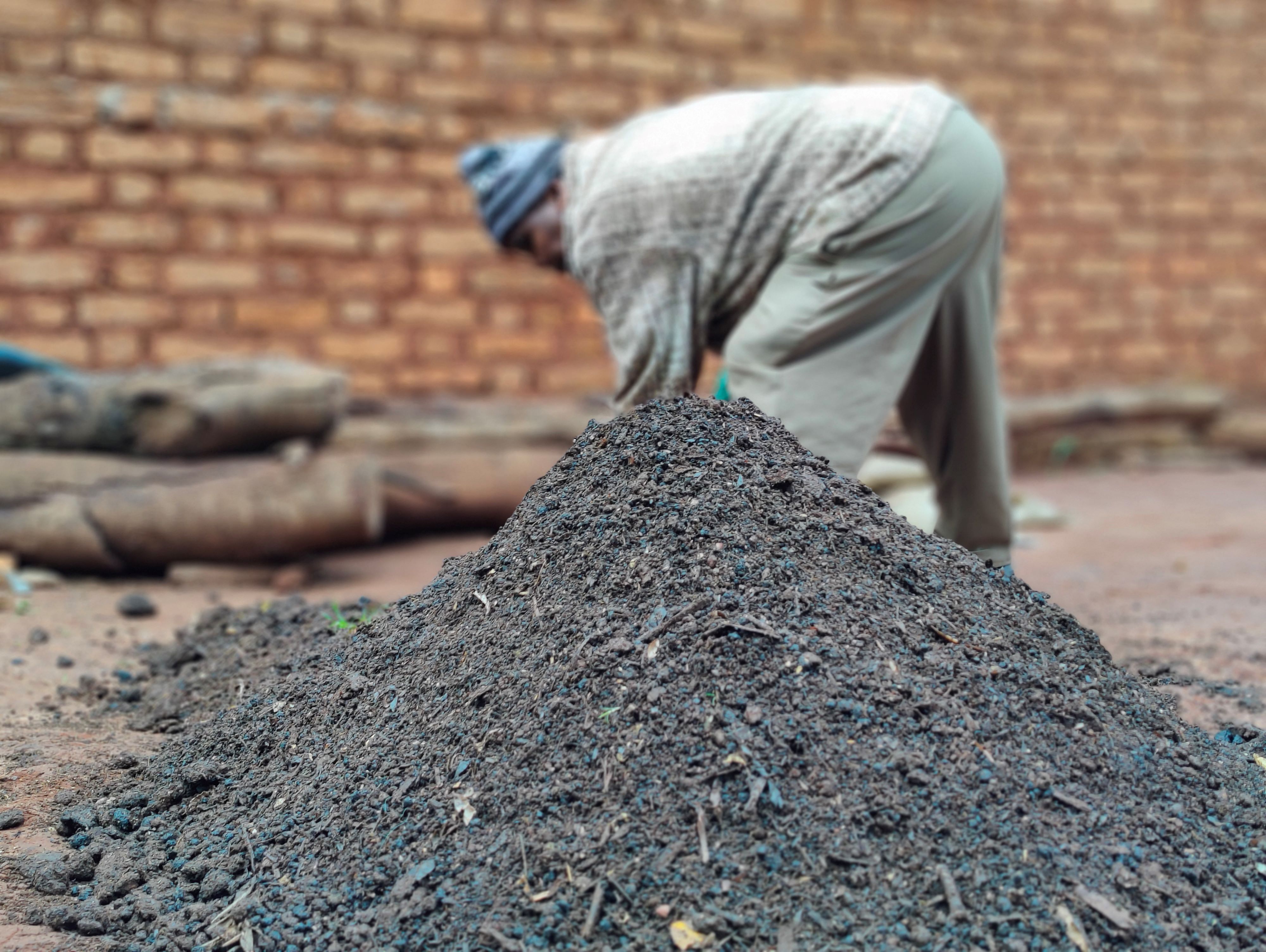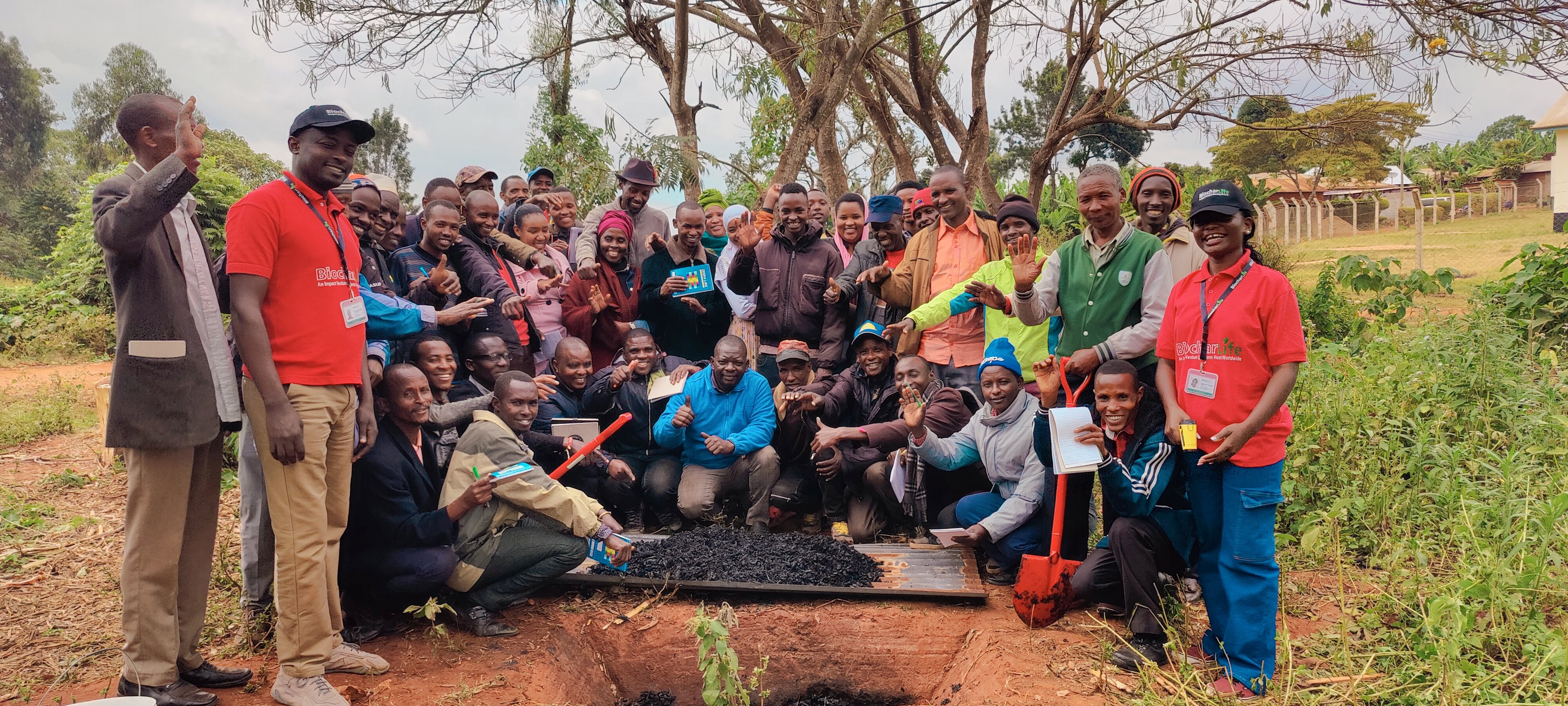Categories:
- Income
Status:
Start Date:
Cost:
Increase farmer's income through sustainable practices
Pilot project on biochar production and utilization
Karimu was established to eliminate poverty in rural areas of Tanzania in a sustainable way. After several years focusing on building infrastructure and local capabilities to address education, health, and sanitation, in recent years Karimu is also focused on improving income generation through entrepreneurship skills training, savings groups for access to capital, and identification of commercially viable opportunities appropriate for communities that are accustomed to farming and raising livestock.
More than 80% of the families in Ayalagaya and Arri are dedicated to subsistence farming and livestock. Sometimes left-overs are sold for income. Currently, there are few profitable uses of by-products of crops harvested like maize husks, cobs and others, as well as chicken manure. A few farmers use them to feed livestock, but most farmers burn or throw away the by-products which presents opportunities both commercially and environmentally.
Karimu, in partnership with Biochar Life, identified biochar production as an opportunity to increase farmers’ short term income through enhanced farming yields, cost savings on fertilizers, and potentially from carbon credits in the longer term, while developing a sustainable and environmentally-friendly approach to the disposal of by-products.

Karimu and Biochar Life will work with 30 farmers in the communities of Arri and Ayalagaya on a pilot of biochar production and application. The main goal of the pilot is to validate assumptions associated with:
-
Farmer’s ability to make and use biochar on their own farms;
-
Economic trade-offs between biochar utilization (increase yields, carbon credits, savings on fertilizers) versus the current uses of biomass (animal feed, selling of raw biomass, home cooking);
-
Biochar can be produced in Arri and Ayalagaya with the processes and quality standards that will effectively generate carbon credits.
For the pilot, Karimu will recruit the farmers, measure baseline practices and measure results at the end of the pilot. Biochar Life will provide training and follow-up to farmers, as well as facilitate the process to obtain carbon credits. Farmers in Arri and Ayalagaya will make and utilize biochar, as well as provide information on their baseline practices and results with the biochar.
July 2024 Update: Working with six pioneer farmers from Arri and Ayalagaya, the pilot project met the success criteria:
-
Cost Savings: Each farmer saved approximately $15 USD by using biochar instead of industrial fertilizers for planting 1/4 of an acre of maize.The average plot size in the region is 2 acres, so the total saving per family per harvest will be close to $120 which is quite significant.
-
Biochar Production: Six farmers produced 30 buckets of biochar by using corn cobs, which were mixed with 120 buckets of manure to make a total of 150 buckets. This biochar was applied during planting and when the maize reached 5 leaves.
-
Additional Cost Considerations: There were no additional costs reported for using corn cobs for biochar production, as farmers used firewood as an alternative for cooking. However, it's noted that if corn stalks were used for biochar production, there might have been a cost implication due to the need to find alternative animal feed.
-
Satisfaction Level: Farmers were very positive thoughts about biochar, with some reporting that the outcomes exceeded their expectations. Positive feedback was also received from people passing by the farms, generating interest in biochar for future planting seasons.
Based on these metrics, it's clear that using biochar has provided tangible benefits in terms of cost savings and positive outcomes for the farmers involved. Following the success of the pilot the collaboration with Biochar Life will continue as the project scales to 300+ maize farmers across Arri and Ayalagaya. Notably, the expansion will seek to include 100 of the poorest households in the region.

To enable this expansion, Karimu will fund the work of ~35 trainers-verifiers who will work with the farmers to ensure they are applying the most appropriate practices when producing and utilizing biochar.

October 2024 Update : We are very happy that Circular Bionutrient Economy Network has published a report, Biochar: A Farmer's Best Friend in Tanzania and Beyond, based on our project results thus far.
Update January 2026: Karimu produced a Biochar Impact report summarizing the success of the BioChar project in Ayalagya in 2024/2025. It successfully demonstrated that biochar can replace chemical fertilizers, increase maize productivity, and boost farm profitability. The six farmer pilot referenced above was highly successful achieving a 57.7% yield increase. In the 2024/2025 season, the program was scaled to 478 households, achieving a 98% farmer satisfaction rate. The expansion led to a 80.32% rise in average profitability of maize per acre, driven by higher yields and lower chemical fertilizer and pesticide costs. Compared with farmers who did not use biochar in the region, biochar rehabilitated lower-performing land and produced 7× higher gains than conventional inputs, especially for the poorest and youth farmers. While the project’s primary focus is agriculture, all biochar production and application adhered to carbon credit standards to ensure high-quality output and effective carbon retention, even though carbon credits are not being pursued.
Benefits:
-
Additional income
-
Sustainable and beneficial disposition of biomass
-
Reduced smoke from burning biomass
-
Supplemental income for trainers-verifiers
Cost:
-
Karimu cost: $30,000


